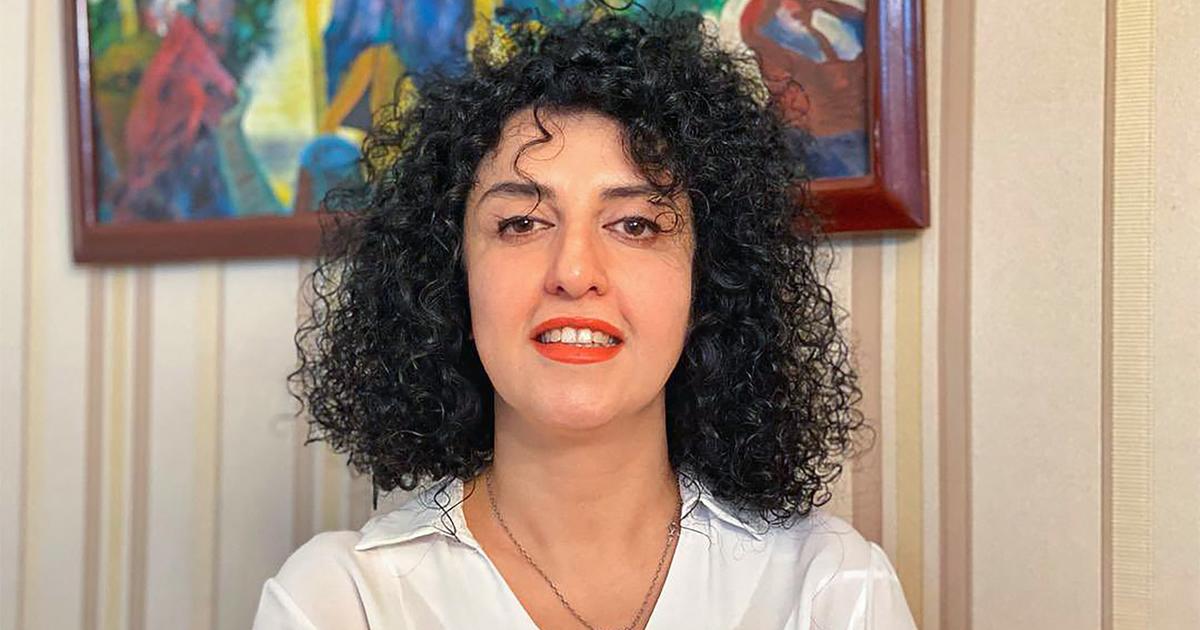When the United Nations (UN) was created from the ruins of World War II, it would have been inconceivable that someone like me – a young black man who is gay and uses a wheelchair – would have been considered for a job high level inside.
It is incredible proof of the distance that humanity has traveled since 1945 that I am among the candidates that the UN will evaluate to succeed Michelle Bachelet, when she leaves her post as the organization's High Commissioner for Human Rights next month.
If selected, I would be the highest-ranking international civil servant with disabilities since the founding of the UN, and the appointment, a historic victory for the 1.3 billion people with disabilities who, according to UN data, make up the group largest minority on the planet.
The United Nations Convention on the Rights of Persons with Disabilities, signed in 2007, has helped advance inclusion across the board, but seeing someone in a wheelchair in a position of power is still very rare.
Today, in many parts of the planet, the face of ostracism is still a disabled boy with brown skin.
I could easily have been that boy.
You could say that my experience as a human rights activist began when I was six years old and with tears on my face I said to my mother: “I want to go to school”.
Life for a boy in a wheelchair in Namibia, where I lived for the first nine years of my life, is extremely limited, as in much of the developing world.
According to the UN, between 90% and 98% of children with disabilities in the global South lack the opportunity to attend school.
Between 90% and 98% of children with disabilities in the global South lack the opportunity to attend school, according to the UN
At that time, just by being alive, he was already going against all odds.
Two years later I had been diagnosed with spinal muscular atrophy, a deadly degenerative disease that affects the nervous system.
Doctors had told my mother that she probably wouldn't live past the age of five.
Today I am 31.
When I told her that I wanted to go to school, my mother wiped my tears and made up her mind.
She found one willing to accept me.
On my first day of school, they put me in the back of the classroom.
It was evident that little was expected of me.
I surprised the teacher by writing my name alone, something most of my classmates couldn't do.
A smile spread across her face as she saw that she could learn as much or faster than the others.
That experience taught me to aim high, no matter what obstacles came my way.
My candidacy to succeed Bachelet seeks to push the limits of what is possible, not only for people with disabilities, but for anyone who has ever felt devalued, undervalued and marginalized.
If selected, he would be the youngest leader at a senior leadership level.
The UN often emphasizes the importance of youth participation, given the stakes for the future.
And yet, we remain an underrepresented demographic at the institution.
Selecting a young man for this position would give new impetus and authority to the work of the High Commissioner.
Achieving human rights for all too often feels unattainable, especially today when everything seems impossible.
But, as Nelson Mandela pointed out, it always seems impossible until it's done.
I had to remind myself of these words some time ago, when I was still working at Amnesty International and had an impossible mandate to bridge the positions of two groups known for not trusting each other: business leaders and human rights defenders.
I persuaded them to listen as part of a campaign to hold extractive industries accountable for human rights violations in Africa.
For the first time since 2001, the majority of the world's population lives under undemocratic governments that violate rights
At a time when the world is increasingly fractured and it feels like we have simply stopped listening to each other, I think the United Nations High Commissioner for Human Rights is uniquely qualified to address today's most pressing challenges.
For the first time since 2001, the majority of the world's population lives under undemocratic governments that violate rights.
We are facing heightened nationalism, an emerging economic crisis and a global pandemic, a health crisis to which too many governments have responded by asking for emergency powers and adopting restrictions that often violate rights.
And, of course, the conflicts in the Ukraine, the Sahel, Myanmar, and various other points around the globe create their own major red flags.
The UN High Commissioner plays a crucial role in times like these, serving as a beacon for the principles that guide human rights and standing up for those who bravely speak out when they see violations across the globe.
As the Secretary-General of the United Nations, António Guterres, has said, human rights underpin the entire UN system.
"They are essential to addressing the broad causes and effects of complex crises, and to building sustainable, secure and peaceful societies."
If selected for this role by the secretary-general, my job would be to tirelessly identify and expose rights violations, no matter how powerful the interests that stand in the way, and engage with civil society actors to make the work of the UN is more participatory and relevant to promote the necessary changes.
I am undoubtedly an unusual candidate for this position;
some would say an impossible option.
But I believe that especially in these times the world needs exactly that: fresh thinking, new energy, and the ability to see how to overcome seemingly unattainable barriers.
Eddie Ndopu
, human rights activist, is an advisor to the UN Secretary-General on the Sustainable Development Goals.
Translated from the English by David Meléndez Tormen.
Copyright: Project Syndicate, 2022.
You can follow PLANETA FUTURO on
,
and
, and subscribe
to our 'newsletter'
here
.


/cloudfront-eu-central-1.images.arcpublishing.com/prisa/F5GRV7HUTZACRHBAVHSBBMKKFM.jpg)

/cloudfront-eu-central-1.images.arcpublishing.com/prisa/G7J25I4OOHXVW446UNDNGJQBVA.jpg)



/cloudfront-eu-central-1.images.arcpublishing.com/prisa/H4DUTPGEDBGONIB2ML352GW4O4.jpg)






